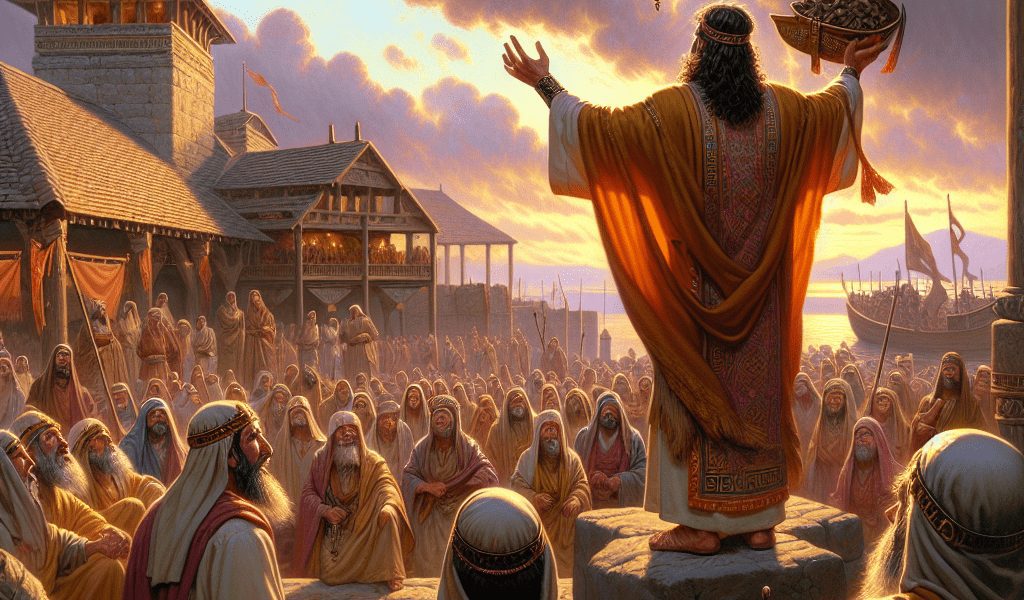At the dawn of King Zedekiah’s rule over Judah, during the fourth year and the fifth month, a prophet from the town of Gibeon named Hananiah, son of Azzur, came forth. In the house of Jehovah, under the observant eyes of the priests and people, he spoke. With an assertive, authoritative voice, he declared that Jehovah, the God of Israel, had broken the oppressive yoke of the Babylonian king.
He prophesied a vision of restoration. He claimed that within two full years, Jehovah would return to their rightful place all the sacred vessels that King Nebuchadnezzar of Babylon had seized and carried off to his kingdom. Moreover, Hananiah promised the people that Jehovah would bring back Jeconiah, son of Jehoiakim, king of Judah, along with all the captives of Judah, who had been taken to Babylon. For Jehovah, he said, had pledged to break the bondage imposed by the Babylonian king.
Listening to these hopeful words, Prophet Jeremiah stepped forth. Speaking to Hananiah, and in full sight and hearing of the priests and the people present, Jeremiah declared his agreement. He expressed his fervent wish for Jehovah to fulfill these promises, to tug His people and all their possessions back from Babylon. But, inheritor of a deep, resonant tradition, Jeremiah warned Hananiah and the people of the important precedent: Prophets of the past had often spoken prophetic words against various nations and kingdoms, their teachings freighted with harsh warnings of war, evil, and plague.
In a symbolic gesture, Hananiah removed the yoke from Jeremiah’s neck, breaking it, as he announced that so would Jehovah break the yoke of Nebuchadnezzar. This power shift, he prophesied, would come to pass within two years. Jeremiah, contemplative and concerned, went his own way.
Not long after these events, a divine message found its way to Jeremiah. In this revelation, Jehovah instructed Jeremiah to convey a grave message to Hananiah. The breaking of the wooden yoke, Jeremiah explained to Hananiah, had only replaced it with an iron one. For Jehovah had imposed a stronger, unyielding yoke on all the nations, binding them to serve Nebuchadnezzar. Jehovah had even given him dominion over the beasts of the field.
Again, though, Jeremiah had to deliver a chilling message to his fellow prophet. Jehovah had not sent Hananiah, he told him. His falsehoods had led the people to trust in a lie. Jehovah, in His righteous anger, would punish Hananiah. He would be sent away from this world before the year’s end, because he had dared to spread rebellion against Jehovah.
And so, just as Jehovah decreed, in the seventh month of that same year, Prophet Hananiah breathed his last. The people remembered his grand promise, but it was Jeremiah’s words—the hard truth—that echoed within them. His story served as a stern reminder that the path of false prophecies only led to a grim end.




